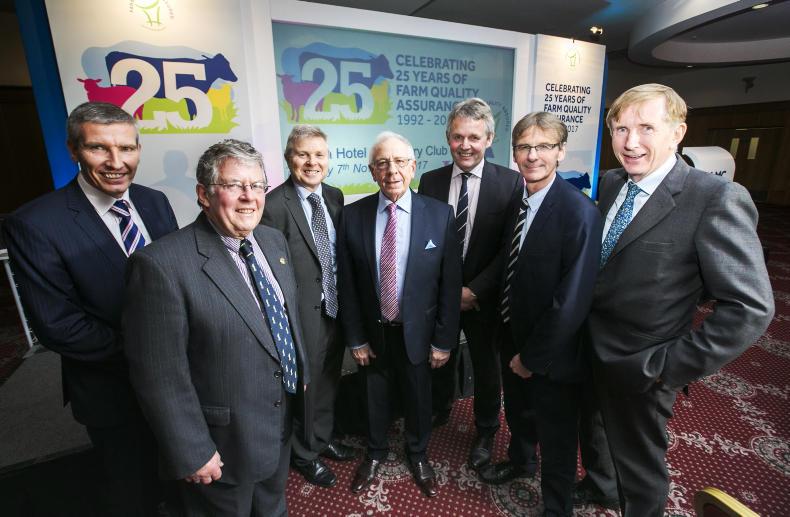Being able to prove that virtually 100% of the beef coming from NI is farm quality assured will be vital if the industry here is to have a profitable future and retain its position as a premium product in the British market, a leading food safety expert has said.
Speaking at a dinner to mark 25 years of the NI beef and lamb farm quality assurance scheme (FQAS) in NI, Professor Pat Wall from University College Dublin, said that he believed that the NI beef industry has a positive future post-Brexit.
“Your farm assurance scheme will be even more important going forward – it is a big point of differentiation for yourselves from low-cost competitors. There are enough of those premium customers in the UK market after Brexit,” according to Wall.
However, he challenged the industry that it can do better marketing the product, pointing out that we should stop talking about our green image, given that it is actually a green reality.
He also emphasised that the industry must be alive at all times to a food scare that could undermine trust that has been hard earned.
Concern
On issues of concern for consumers, he said that many would be shocked by things that farmers see as normal – such as using a calving jack, a hip hoist or even the reality of what happens in an abattoir. “We need to be very careful around animal welfare. The gap between farmers and consumers is getting wider and wider,” he said.
He also touched on nutritional advice often given to consumers to avoid things such as too much red meat, dairy or eggs in the diet, maintaining that “a lot of it is rubbish”, especially when compared with the range of other products put into the weekly shopping basket.
He maintained that a growing trend is nutrition of the elderly, and this is something that the dairy industry has already sought to exploit. “Could the meat industry plant where the dairy industry has ploughed? The amino acid profile of meat is far superior to whey,” said Wall.
He finished off by warning farmers that they must be careful around the environment, as any perception that they are harming the countryside could switch off premium consumers.






 This is a subscriber-only article
This is a subscriber-only article










SHARING OPTIONS: